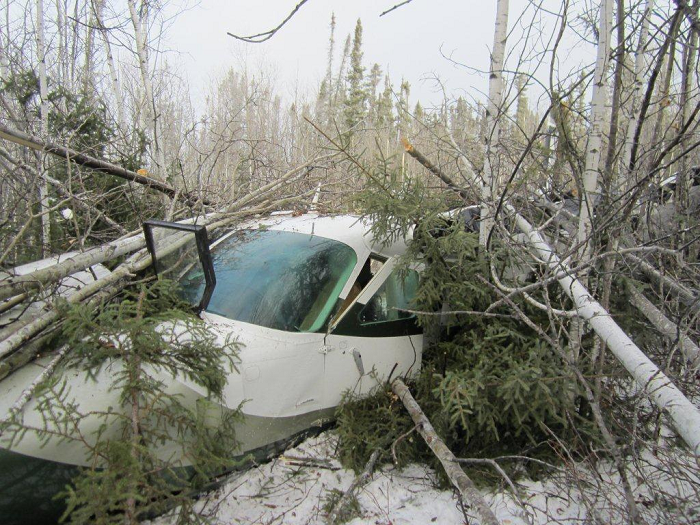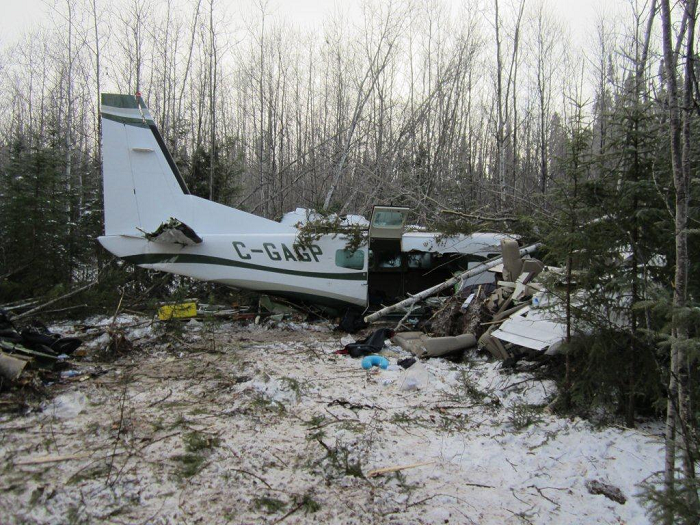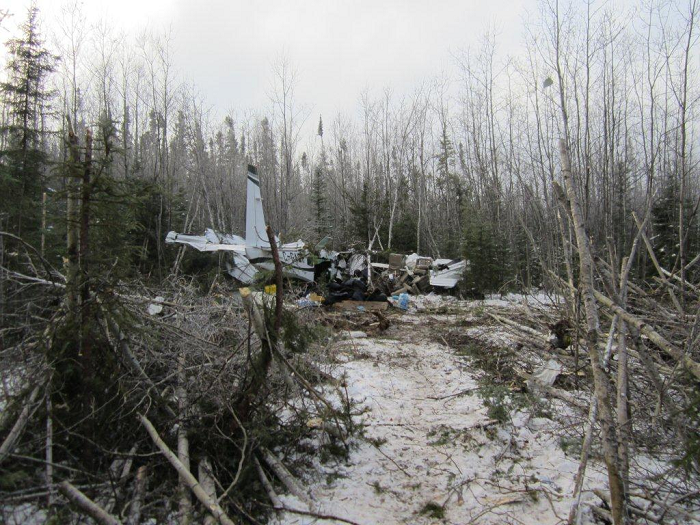Loss of control and collision with terrain
Gogal Air Services Limited
Cessna 208B, C-GAGP
Snow Lake, Manitoba
The occurrence
The Gogal Air Services Limited Cessna 208B (registration C-GAGP, serial number 208B1213) departed Runway 21 at Snow Lake en route to Winnipeg, Manitoba, with the pilot and 7 passengers on board. At approximately 0956 Central Standard Time, shortly after take-off, the aircraft descended and struck the terrain in a wooded area approximately 0.9 nautical miles beyond the departure end of the runway. The pilot was fatally injured, and the 7 passengers sustained serious injuries. The aircraft was destroyed by impact forces, and a small fire ensued near the engine. The aircraft's emergency locater transmitter activated. First responders attended the scene, and the injured passengers were taken to area hospitals. The aircraft's fuel cells ruptured, and some of the onboard fuel spilled at the site.
Media materials
News release
Combination of wing icing and overloaded aircraft led to fatal 2012 Manitoba plane crash
Read the news release
Deployment notice
Transportation Safety Board of Canada deploys a team of investigators to an air accident near Snow Lake, Manitoba
The Transportation Safety Board of Canada (TSB) is deploying a team of investigators to the site of an air accident in Snow Lake Manitoba, involving a Cessna 208. The TSB will gather information and assess the occurrence.
Investigation information
Download high-resolution photos from the TSB Flickr page.
Class of investigation
This is a class 3 investigation. These investigations analyze a small number of safety issues, and may result in recommendations. Class 3 investigations are generally completed within 450 days. For more information, see the Policy on Occurrence Classification.
TSB investigation process
There are 3 phases to a TSB investigation
- Field phase: a team of investigators examines the occurrence site and wreckage, interviews witnesses and collects pertinent information.
- Examination and analysis phase: the TSB reviews pertinent records, tests components of the wreckage in the lab, determines the sequence of events and identifies safety deficiencies. When safety deficiencies are suspected or confirmed, the TSB advises the appropriate authority without waiting until publication of the final report.
- Report phase: a confidential draft report is approved by the Board and sent to persons and corporations who are directly concerned by the report. They then have the opportunity to dispute or correct information they believe to be incorrect. The Board considers all representations before approving the final report, which is subsequently released to the public.
For more information, see our Investigation process page.
The TSB is an independent agency that investigates air, marine, pipeline, and rail transportation occurrences. Its sole aim is the advancement of transportation safety. It is not the function of the Board to assign fault or determine civil or criminal liability.


